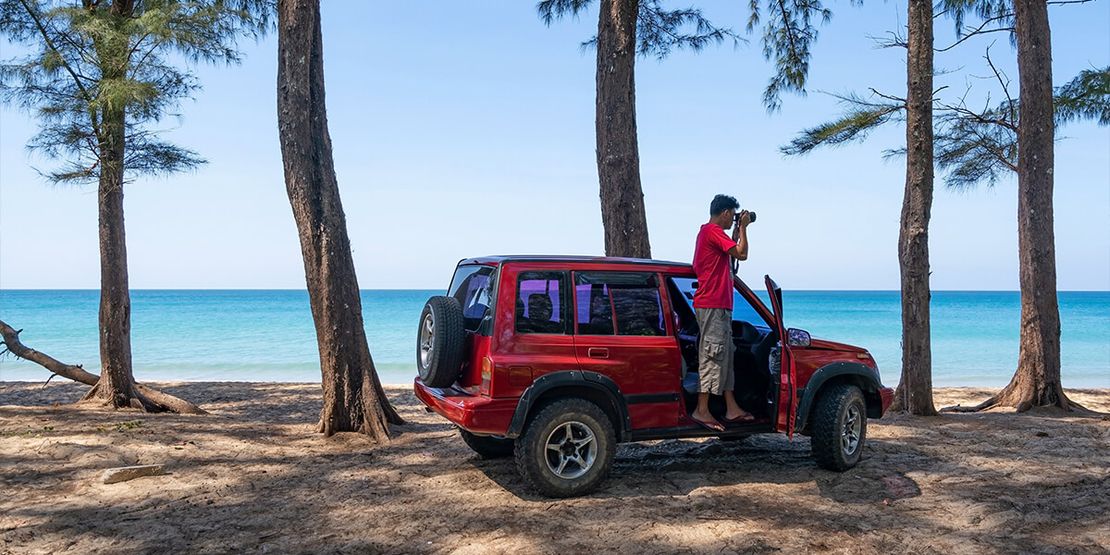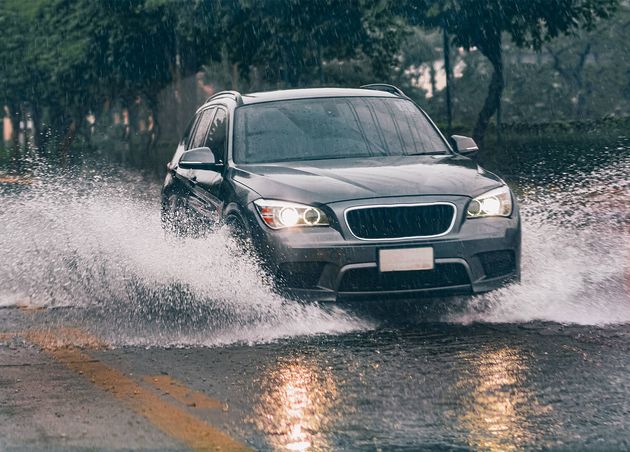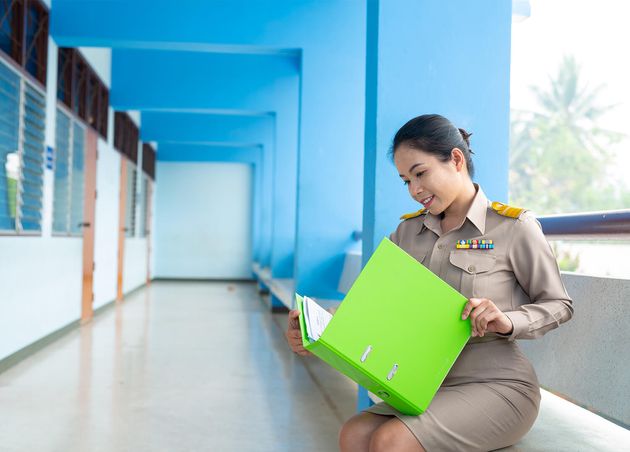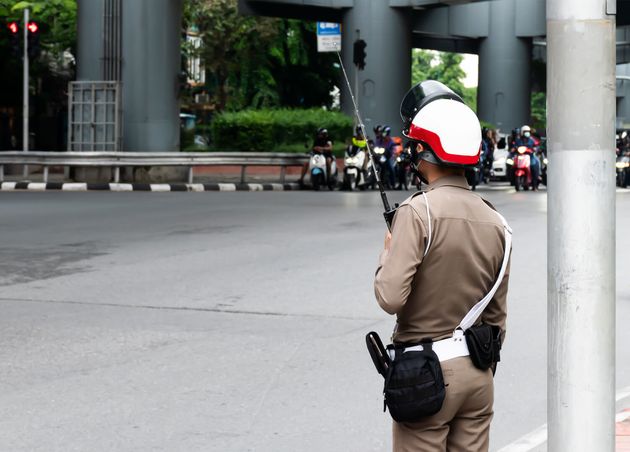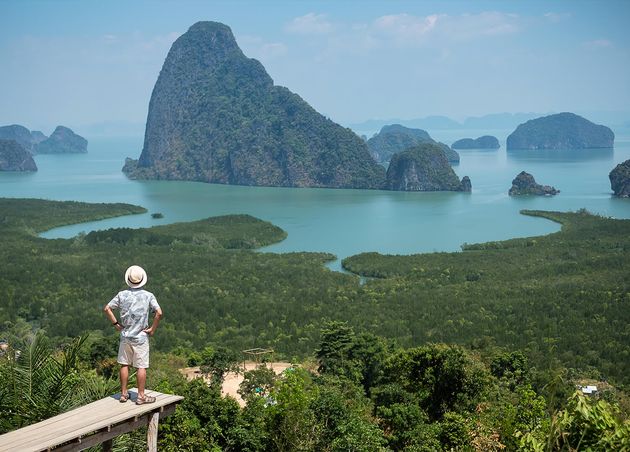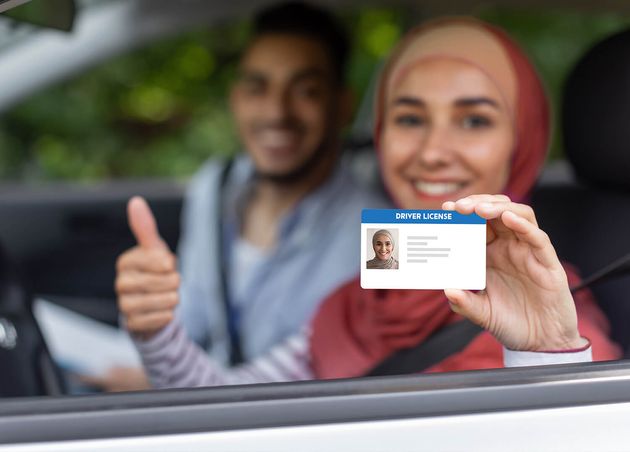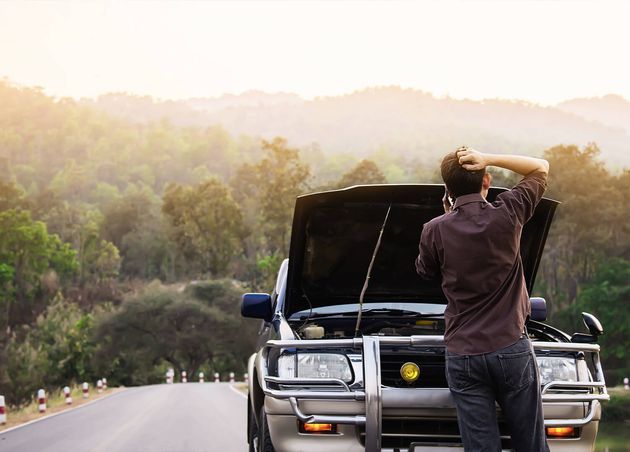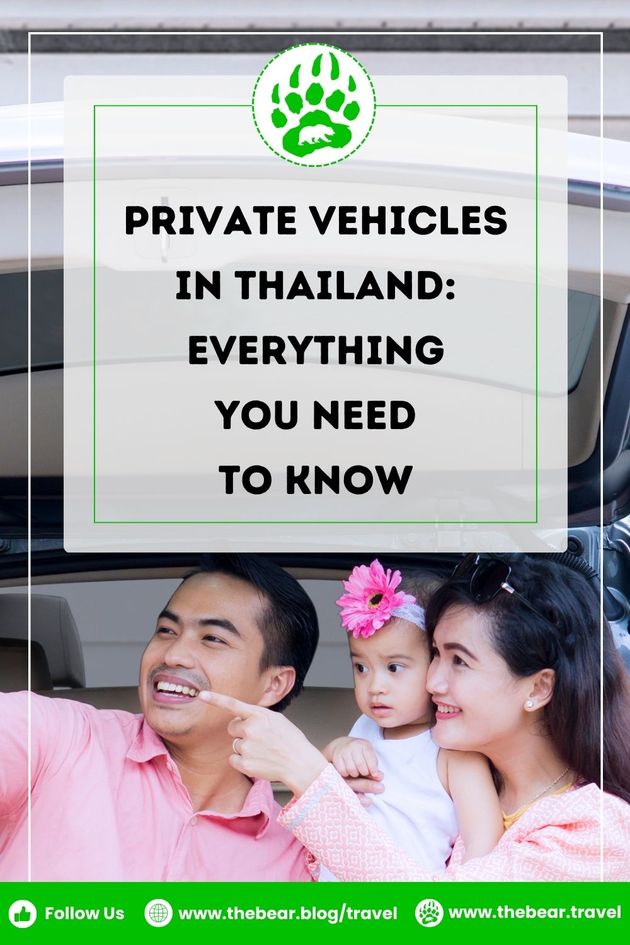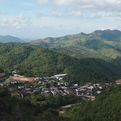Private Vehicles in Thailand: Everything You Need to Know
Traveling with private vehicles in Thailand gives you incredible freedom of movement, as well as you get a hassle-free journey everywhere.
Compared with cultural tours or public transportation, the price is low as driving often turns out to be even more profitable to travel by public transport.
So, in this article, we have gathered significant information and some of the features you should know if you travel to Thailand in a private vehicle.
Because it's essential to know all the relevant things when traveling around Thailand in a private vehicle, learn more about it by reading till the end.
Essential Information to Know Before Traveling to Thailand
Before hitting the road, let's give you an overview of the key points discussed here.
- Thai Police Checkpoints
- Renting Vehicles
- Accidents
- Insurances
- Rules and Regulations
Enjoy Thailand with your private vehicle and drive directly to the most beautiful landscapes in the world on breathtaking coastal roads from the southern beaches and islands to the northern mountains and temples. This is a true dream for most people in the world because the fantastic views of Thailand will be more breathtaking from the comfort of your vehicle, and your wish list can be ideally explored at your own pace.
Thailand is a land of enchantment and a country rich with glamorous places. Seeing the country with the comfort of a private vehicle can elevate Thailand tours to world-class, allowing you to get off the beaten track and see the nation's treasures at your own pace, in style. However, it's better to know all the rules and regulations you should know about driving and visiting places in Thailand.
Furthermore, Thailand also offers so many memorable experiences during your visit. But how can you get around the Land of Smiles to discover the country's incredible diversity? Here's everything you need to know about traveling in Thailand with private vehicles.
Encountering Police Checkpoints in Thailand
Restrictions have been in place for foreign arrivals in Thailand's Southernmost provinces of Pattani, Yala, Narathiwat, and Songkhla. These provinces have seen a few incidents of criminally and politically motivated violence through shootings, ambushes, and bomb attacks.
Due to unfortunate incidents, Thailand has strict special security measures to ensure foreigners' safety, like random searches in affected areas. So, no need to be afraid of visiting, but foreigners who wish to travel to the border areas should be checked with Thai tourist police definitely due to the difficulty in assuring safety and security for tourists rather than locals.
Furthermore, in rural areas of Thailand outside the major cities, there is active monitoring by police and military checkpoints, where travelers might be requested to provide identification. This practice is in place due to intermittent conflicts between Thai security forces, armed criminal factions, and drug traffickers along the border between Thailand and Myanmar.
Crossing into Myanmar as a foreigner is only permissible at official border checkpoints, and prior authorization from Thai authorities is necessary. Travelers are advised to exercise heightened caution in border regions and adhere to the guidance provided by Thai authorities, who prioritize the safety and security of all individuals traveling through these areas.
Thai forces put checkpoints not only to save people but also to save nature. There are some Thai checkpoints, especially around national parks outside Krung Thep Maha Nakhon (Bangkok). It's the best solution to stop the large-scale illegal wood transport within the country.
As a result of the increasing level of illegal forest cutting, there are some specific rules and regulations for even wood furniture transport from the rural areas to the cities in other areas.
Navigating Interactions with Thai Police
- Don't argue with the Thai police.
- Always keep a photocopy of your passport with you to use as an ID.
- Try to get a witness to your interaction with a Thai police officer to back up your version of events.
- Save the phone number of your country’s Thai-based embassy on your phone.
- Carry an international driver’s permit or, at the very least, your driver’s license from home.
Understanding the Role of Tourist Police in Thailand
Thailand’s main tourist destinations have special police units to help foreigners. They will be available in Krung Thep Maha Nakhon (Bangkok), Phuket, Pattaya, and Chiang Mai. The police units stationed at these checkpoints are composed of Thai officers who are proficient in English. They can be easily identified by their vests, prominently labeled as "Tourist Police."
Foreigners needing assistance can contact the tourist police by dialing 1155, and they will promptly respond to the situation. These officers specialize in solving arguments between tourists and Thai people, which can be related to theft, scams, road accidents, or financial disputes. If you become a victim of a severe crime, visit the nearest police station. For lower-stakes matters, call the tourist police phone line.
🧑🎓 Quick Trivia!
Thailand has some of the most congested road traffic, especially in Bangkok. Due to wavy traffic, the country reports more road accidents, estimating roughly 90 thousand annually.
Obtaining a Thai Driving License
To drive a private car or ride a motorbike in Thailand, foreigners must have the correct license and appropriate insurance for their vehicle category. Foreigners can drive with an international driving license in Thailand - as long as they stay at most 90 days.
And after 90 days, a foreigner is not classified as a tourist, and they are classified as a long-term stay. So, simply after 90 days, you need a Thai driver's license. It is for your safety because many road accidents are reported in Thailand annually. Driving yourself around Thailand can be pretty straightforward. And also, be sure to check out any vehicle carefully before renting.
In Thailand, the established driving norm dictates that vehicles should keep to the left side of the road, and the designated speed limits are 60 kph when navigating urban zones and 90 kph when traveling outside such areas. While some general driving guidelines are adhered to, it's important to maintain a high level of attentiveness while on the road, as you should anticipate unforeseen actions from other drivers. It's advisable to be cautious, particularly when encountering vehicles entering from minor roads, as they might not always yield the right of way as anticipated.
Renting a Private Vehicle in Thailand
When considering renting a car, opting for a well-established dealer or a rental agency recommended by the Tourism Authority of Thailand (TAT) is prudent. Ensuring you secure insurance from the rental provider is also crucial. At a reputable company, the rental cost for a small car can start as low as $28 per day if reserved through online booking platforms.
In certain regions of the country, like Chiang Mai, you will still find the option to rent a car or an air-conditioned minibus with a chauffeur. Prices range from approximately $40 for a local day excursion to about $91 per day for multi-day journeys. These costs typically include the driver's compensation and fuel expenses, providing you with a convenient and hassle-free mode of transportation.
One best way to explore the countryside is to rent a motorbike. You'll never be asked for a driving license, but take it easy out there. Thailand's roads are not the place to learn to ride a motorbike as the conditions are somewhat low. Renting for a single day typically costs approximately $5-6 for a small bike and $15.30 for a quality trail bike. However, negotiation for a discount on longer rentals is often possible. Rental providers usually require a deposit and may ask for your passport or credit card details.
Insurance coverage might not always be available, so it's advisable to confirm that your travel insurance extends to potential issues that may arise. Car rental companies in Thailand establish a minimum age requirement for drivers. This requirement varies, with some companies setting the minimum age at 21 and others at 23. Furthermore, individuals who wish to drive must possess a valid driver's license that has been held for a minimum of one year. Luxury cars are typically reserved for drivers with more experience.
Before signing any agreements, it's prudent to thoroughly inspect the vehicle, including brakes, oil, tire tread, and overall condition. Taking the vehicle for a test drive is preferable. To prevent being charged an inflated price for any damages upon return, document any existing defects on the contract, such as broken mirrors or indicators.
When renting a motorbike, wearing a helmet is essential. Although many rental places provide subpar helmets, having one is better than none. Helmets are mandatory for all motorbike journeys, and law enforcement is often strict about compliance, especially in major tourist areas, where on-the-spot fines may be imposed. Cycling in Thailand is fantastic, and the options are numerous. Most Thai roads are in good condition and signposted.
However, the western and northern borders are mountainous, and the rest of the country is surprisingly flat. Traffic is reasonably well-behaved, and personal safety is not a significant issue. The optimal period for cycling in Thailand is during the cool and dry season, which spans from November to February. On the other hand, the least favorable time for cycling is from April to July. If possible, bringing your bicycle from home is recommended, as it allows you to ride a familiar and well-suited bike for your preferences and needs.
Navigating Steps to Take in Case of an Accident
Many tourists come to Thailand and rent a vehicle to travel the country. Some of them, unfortunately, do have road accidents, and some don't know what to do when it happens. If you find yourself in a traffic accident while traveling in a private vehicle in Thailand or even if you are a resident and drive, here are the steps you should follow:
- Get All Personal Information from the Other Driver
- Take Photos of the Incident
- Move Your Car Out of the Traffic Flow
- Call the Thai Tourist Police
- Always Carry a Mobile Phone
- Don’t Pay Any Cash Upfront
- Stay Calm
- Call Your Insurance Company
You can do whatever you want in Thailand, but once it comes to an accident, everything gets checked, including your visa, driver's license, search for drugs and alcohol, and safety stuff like helmets. You may find yourself in a murder court case in an accident where someone died. But, surely remember, having a traffic accident in Thailand is not the end of your life.
In case of minor injuries or no serious injuries, the potential cost might be limited to a few hundred dollars or even covered by comprehensive car insurance if you have it. Remaining composed and collected in such situations and considering it as part of your adventurous journey can provide you with an interesting story to share with your loved ones once you return from your vacation.
Exploring Insurance Options in Thailand
In Thailand, vehicle insurance options include Compulsory Third-Party Liability Insurance and Private Insurance.
Compulsory Third-Party Liability Insurance
- This insurance is legally required for all cars and motorcycles registered in Thailand. It mandates yearly renewal and offers fundamental coverage for injury and death from road accidents.
- Under the Road Protection Act, Compulsory Third-Party Liability Insurance (CTPL) is the foundational insurance that all vehicles must possess annually. It provides the minimum coverage specified by law. CTPL is primarily geared towards covering medical expenses and limited compensation for accidents where the insured is at fault.
- The coverage amounts vary based on the circumstances:
-
Accident caused by another party: If you are not at fault for the accident, the coverage is up to $2,431 for injuries and $9,118 for deaths.
-
Accident caused by the driver: When the driver is responsible for the accident, the coverage decreases to $911 for injuries.
-
- If an accident leads to injuries, you can promptly initiate the claims process at hospitals by notifying their cashiers. To avail of the maximum coverage, which demonstrates that you were not the cause of the accident, a copy of the police report is essential.
Private Insurance
- Opting for private insurance provides more control over car repair expenses resulting from accidents. This coverage is particularly beneficial in a region where accidents are relatively common. Moreover, private insurance offers the advantage of professional assistance during accidents.
- You can contact your insurance representative after an accident if you hold private insurance. They will promptly arrive at the accident scene, engage with the opposing party, offer roadside support, and provide the necessary claims documentation. This added level of support can significantly ease the post-accident process and ensure that you receive the necessary assistance.
In summary, the two primary options for vehicle insurance in Thailand are Compulsory Third-Party Liability Insurance, which is legally mandatory for all registered vehicles, and Private Insurance, which offers more comprehensive coverage and professional assistance in the event of accidents.
Exercising Caution As Hitchhikers
Hitchhiking is a great way to save money on transport in Thailand. It's cost-effective, fun, and allows you to connect with others. But, be careful when traveling for the extra pleasure of traveling. Don't keep all your money and personal belongings in one place because it's better to be safe than sorry!
Carrying food and water is crucial, as you might not have another opportunity to find refreshments. Only enter a vehicle if you feel at ease with the driver. You can wave as if acknowledging someone to give the impression you're noticed while entering the vehicle. Remember to opt for the front seat whenever possible.
Seamless Private Vehicle Travel in Thailand
In conclusion, modes of transport in Thailand come in all shapes and sizes. But you'll feel more comfortable traveling with private vehicles than public transportation. This article covered everything from Thai police checkpoints to insurance issues and safety tips needed to travel in Thailand. So, this may be the easiest guide for you to travel in Thailand in private vehicles.
🧑🎓 Vocabulary Time!
Congested
: a road or area that is densely packed with traffic or pedestrians to the extent that it obstructs or restricts the smooth movement of vehicles or individuals
Hassle-free
: without problems or bother
Hitchhiker
: someone who travels by getting free rides in someone else's vehicle
Liability
: the state of being legally responsible for something
Reputable
: having a good reputation
Dr. Theodore (Professor Bear)
Hi! I'm Dr. Theodore Bennet (Professor Bear), your scholarly travel companion who brings history to life with immersive tours and expert guides. With a Ph.D. in History and years of travel writing experience, I offer authoritative insights for unforgettable journeys.
The Bear Travel | Experience like a Local
A fast-growing Thailand Travel Blog written by Expats and Thais since 2017. We will share our experiences and ideas from an insider point of view for you to create your own unique Thailand experience.
For the latest news and events about The Bear Travel, follow us on Facebook, Instagram, Twitter, Pinterest, or YouTube.
For any issues, concerns, or queries, don’t hesitate to CONTACT us.
Recommended for you
Holidays in Thailand: Experience the Cultural Significance of Lenten Season
Holly (Holiday Bear)
Advancing Aquaculture Through Biomass Estimation: Methods and Considerations
Riley Sinclair (Digital Aqua Bear)
Travel to Pattaya Guide: Everything You Need to Know
The Bear Team
Pilok Village: An Intriguing Remote Area in Kanchanaburi
The Bear Team


